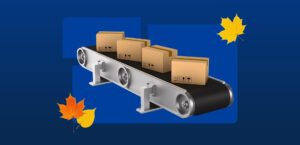Signs That Your Business Needs an ERP System

There will never be huge flashing signs or blinking red lights alerting you to the precise moment of exactly when your business needs an ERP system. But your company can watch for common issues or problem areas, and if you’ve already found yourself here, you’re likely experiencing some of them.
Some common scenarios that suggest a need for an ERP system include:
- Relying on guesswork
- Struggling to make sales
- More frequent complaints from your customers
- Disorganized financial information and a lack of integration.
If some of these challenges sound familiar, you are not alone, and any single one—or many—of these scenarios suggest that it’s time to consider and move forward with an ERP integration. Let’s dive deeper into the top signs that your business needs an ERP system.
- You don’t have the data you need for decision-making – There could be many reasons that company data is low-quality, inaccessible, or non-existent. And that lack of accurate data not only affects what you know about your company, but how you move forward and make the appropriate decisions to reach your business goals. Often, scattered data is a common culprit. In many businesses, information is located in various places, inputted, and accessed at different times by different people with different roles within your organization. An ERP system offers the opportunity to locate, sanitize, and centralize that data so that it’s right there when you need it and as accurate as you need it to be.
- You’re struggling with slow or declining sales – If your business’s sales are down or customers are complaining about their orders or experience, an ERP could help. Maybe sales are hitting a low because you’re experiencing inventory, supply chain, and/or warehousing problems, which impacts your reliability and your customer satisfaction.
An ERP system accounts for every piece of inventory with integrated stock management. That’s only one way that these systems improve sales and customer relationships. If your problem involves inventory, customer communication, or product visibility, an ERP may be the solution you need to boost sales and boost your customers’ expectations and experiences.
- Maintaining accurate financial information is a challenge – Struggling to stay on top of your financial data and reporting is a big red flag that you need an ERP system to help manage your financial systems and processes. ERPs easily store and maintain financial data and allows for easy reporting and reconciling. With the right ERP, you can do away with cumbersome, outdated, and paper-based invoicing, and sales information.
- Your programs and platforms aren’t fully integrated – Are you finding that you have way too many programs and platforms that don’t work together? If so, you can overcome delays and improve productivity by implementing an ERP system, which brings your processes together in one centralized, easy-to-access, and easy-to-understand space. That goes for complicated IT management, too. An ERP’s agility and functionality can reduce much of the burden of IT, as well as many other departments and functions of your business.
Reading the Signs
It’s worth it to explore how an ERP can help you streamline functions, improve productivity, and introduce a new, integrated, and more efficient way of doing business. We’re here to help you look into the ERP solutions available, and to find ways to use ERP systems to solve your challenges. Get in touch with us today to learn more.
Similar Blogs

January Decision Digest

December Decision Digest





